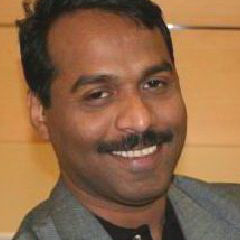Kerala has no dearth of universities. We have set up universities for Malayalam and Sanskrit. We have a university for legal studies and another one for science and technology. Kerala Kalamandalam is a university too. A police university has also been mooted.
We want any number of universities but we seldom care about their quality.
Why do the university and college teachers in Kerala send their wards outside the state to study? Why do ministers and former ministers do so? Because they know that the state’s higher education sector is in shambles.
Why? Because we only care about our rights and seldom care about duties. This social psychology’s greatest casualty is the education sector, specifically higher education.
The predominance of party politics does its part in spoiling the atmosphere. Most universities are actually run by the leaders of the non-teaching staff unions. They are more interested in union activities than their actual work.
The mechanism called syndicate is another cause for the sorry state of affairs at our universities. University syndicates were meant to ensure quality of education and make functions efficient and to do away with corruption and nepotism. Sadly, they have the opposite effect most of the time since they are populated by agents of political parties or nominees of community organisations.
The rot has spread to the top. The previous government’s term witnessed the sharing of vice-chancellor posts among political and religious groups.
The Higher Education Council stands as a case study for undoing a great idea. Though the body was led by two tested persons in the last 10 years, they could not do anything material to ensure quality of education.
LDF govt vows master plan to revamp Kerala education system
What can we do?
1. Increase the quality of existing universities rather than creating new ones.
2. Form expert committees to implement projects with global standards.
3. Bring in legislation to keep syndicates free of political vested interests and populate them with academically qualified persons.
4. Abide by the UGC guidelines in the appointment of vice chancellors. Make management leadership training compulsory for the vice chancellors.
5. Ensure the quality of the Higher Education Council by appointing only those persons who have proved their merit in academics, management and policy areas nationally and internationally.
6. Make annual performance plan compulsory for all sections of the university.
7. Usher in excellent researchers from different parts of the country and abroad.
8. Introduce international academic exchange.
(The writer is UNDP’s international consultant and former director. The views expressed are personal.)

























